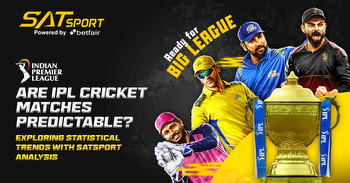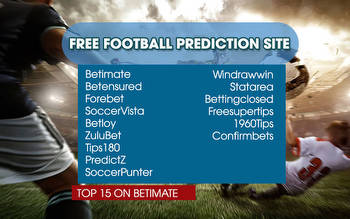Introduction to Sports Betting Analytics: Understanding the Basics

In the world of sports betting, where luck and intuition often take center stage, a growing number of enthusiasts are turning to sports betting analytics to gain a competitive edge. These enthusiasts recognize that informed decisions, backed by data-driven insights, can greatly improve their chances of success in this ever-evolving industry. In this article, we will delve into the fundamental aspects of sports betting analytics, exploring various mathematical models, the process of data collection, cleaning, and analysis, and the importance of choosing trusted betting sites.
The Rise of Sports Betting Analytics
Sports betting has been around for centuries, with people wagering on the outcomes of athletic competitions as a source of entertainment and excitement. However, in recent years, the landscape of sports betting has undergone a significant transformation. The advent of technology and the availability of vast amounts of data have given rise to sports betting analytics, allowing both professional and recreational bettors to make more informed decisions.
Understanding Mathematical Models in Sports Betting
At the core of sports betting analytics are mathematical models designed to predict the outcomes of sporting events. These models are developed based on historical data, statistical analysis, and a deep understanding of the specific sport being analyzed. Here are some of the different mathematical models used in sports betting:
1. Statistical Models:
Regression Analysis: This is a widely-used statistical technique that examines the relationship between various factors and the outcome of a sporting event. For instance, in soccer, regression analysis may consider factors such as team performance, player statistics, weather conditions, and historical match results to predict future outcomes.
Monte Carlo Simulation: This probabilistic method simulates thousands of possible outcomes based on historical data and statistical probabilities. It provides a range of possible results and their likelihood, helping bettors make more informed choices.
2. Machine Learning Models:
Neural Networks: Neural networks, a subset of machine learning, have gained popularity in sports betting analytics due to their ability to process vast amounts of data and identify complex patterns. They are often used to predict player performance, game outcomes, and even player injuries.
Random Forests and Decision Trees: These ensemble learning techniques are employed to make predictions based on a combination of multiple decision trees. They are particularly useful in analyzing team dynamics and predicting game results.
3. Advanced Metrics Models:
Advanced Analytics Metrics: In some sports like basketball and baseball, advanced metrics like Player Efficiency Rating (PER) or Wins Above Replacement (WAR) are used to evaluate player performance. Bettors can use these metrics to gain insights into individual player contributions and team dynamics.
These mathematical models serve as valuable tools for sports bettors, allowing them to make data-driven predictions and identify favorable betting opportunities.
Data Collection, Cleaning, and Analysis
The effectiveness of sports betting analytics hinges on the quality and relevance of the data used. Here’s an overview of how data is collected, cleaned, and analyzed for betting purposes:
Data Collection:
Historical Data: Historical data, including game results, player statistics, team performance, and injury reports, forms the foundation of sports betting analytics. This data is typically obtained from official league sources, sports databases, and specialized data providers.
Real-time Data: To gain an edge, many bettors rely on real-time data sources such as live game feeds, social media updates, and injury reports. These sources help bettors react quickly to changing circumstances during a game.
Data Cleaning:
Data Validation: Raw data often contains errors, missing values, or inconsistencies. Data cleaning involves identifying and rectifying these issues to ensure accuracy.
Feature Engineering: This process involves selecting and creating relevant features from the data that can enhance predictive models. For example, in basketball, offensive and defensive efficiency ratings can be calculated from player and team statistics.
Data Analysis:
Statistical Analysis: Statistical techniques are used to identify patterns, trends, and correlations within the data. This analysis informs the creation of mathematical models.
Machine Learning: Machine learning algorithms are trained on historical data to make predictions and optimize betting strategies. Models are continually updated with new data to improve accuracy.
Risk Management: Effective bankroll management and risk assessment are critical components of sports betting analytics. Bettors use their models to calculate the optimal size of bets to minimize risk while maximizing potential returns.
The Importance of Choosing Trusted Betting Sites
While sports betting analytics can provide valuable insights and strategies, it’s crucial to bet on trusted and reputable platforms. Only by betting on trusted bookmakers’ websites can you be sure that your hard-earned money will reach your wallet. If you don’t want to be sure that the money you win will reach you, you can choose one of the sportsbooks listed in this Wikihow guide, or you can carry out a personal analysis of the bookmakers based on the criteria listed below:
1. Fair Play and Transparency:
Trusted betting sites are regulated and licensed by government authorities, ensuring they adhere to strict standards of fairness and transparency. This means that the odds are calculated fairly, and the outcomes are not manipulated to disadvantage bettors.
2. Security and Data Protection:
Reputable betting sites invest heavily in cybersecurity to protect their users’ personal and financial information. They use encryption technologies and follow industry best practices to safeguard data.
3. Payout Reliability:
Trustworthy betting sites have a history of honoring payouts promptly. You can be confident that if you win a bet, you will receive your winnings without delay.
4. Responsible Gambling Measures:
Reputable betting platforms promote responsible gambling and offer tools such as self-exclusion options and deposit limits to help users maintain control over their betting activities.
5. Customer Support:
Trusted betting sites provide reliable customer support, including live chat, email, and phone assistance. This ensures that users can seek help or clarification whenever needed.
6. Competitive Odds and Markets:
Reputable betting platforms often offer competitive odds and a wide range of betting markets, giving bettors access to diverse wagering options.
7. Reviews and Recommendations:
Before choosing a betting site, it’s advisable to research and read reviews from other users. Recommendations from experienced bettors can provide valuable insights into the reliability and quality of a platform.
8. Licensing and Regulation:
Check whether the betting site is licensed and regulated by a recognized authority in the jurisdiction where it operates. Licensing ensures that the site adheres to legal and ethical standards.
Sports betting analytics has ushered in a new era for sports wagering, enabling bettors to make data-driven decisions and increase their chances of success. Various mathematical models, including statistical, machine learning, and advanced metrics models, are used to predict game outcomes and player performance. Data collection, cleaning, and analysis play a crucial role in the development of these models.
However, it’s essential to exercise caution and choose only trusted betting sites for your wagers. Trustworthy platforms offer fair play, security, reliable payouts, responsible gambling measures, and excellent customer support. By combining the power of sports betting analytics with the assurance of betting on reputable sites, enthusiasts can enjoy a safer and more rewarding betting experience. Remember, success in sports betting is not solely dependent on analytics but also on responsible and informed decision-making.




































